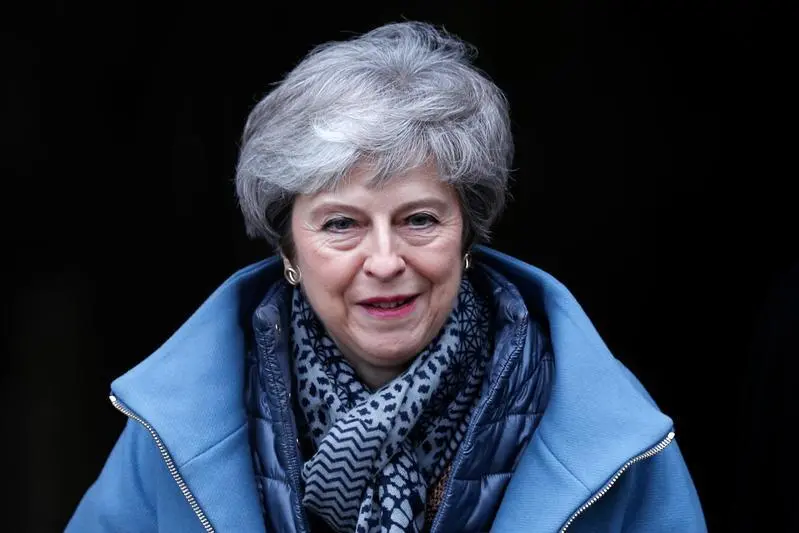PHOTO
LONDON - Theresa May’s so-called Brexit bribe is unlikely to sway hearts and minds. The UK prime minister promised to invest 1.6 billion pounds in impoverished English towns. Critics see it as a bung to get opposition lawmakers to back her EU exit deal. But the paltry investment might only draw attention to the damage that May’s Brexit has already done the UK.
May is not explicitly tying funds from the new “Stronger Towns” kitty to support for her Brexit deal. But the timing suggests a strong link. The fund was cooked up in the last few weeks just in time for a March 12 vote, and after discussion with opposition MPs in constituencies that voted to leave the EU, and so might back May’s deal. The money will be doled out according to a “needs-based formula”, the government says, but is skewed against parts of the UK where lawmakers are unlikely to back May’s deal, like Scotland.
However, the 1.6 billion pounds, spread over six years, is small beer when compared to the 1.5 billion pounds that the European Union gives each year to the UK to help develop its poorer regions. The two funds aren’t directly comparable: the UK will continue to receive EU funds through 2020, and the government has said it will come up with a new scheme. Yet it has not committed so far to match the loss of EU funds. If the Towns Fund is a start, there is a long way to go to offset the damage from leaving the EU.
Moreover, measured against the economic impact of Brexit, the new fund is an even smaller drop in the ocean. Berenberg estimates that UK business investment is roughly 14 percent lower now than it would have been if the 2016 Brexit vote had not happened. That equates to around 30 billion pounds a year, or 112 times the Towns Fund. Investment might pick up once the UK leaves and clarity emerges over its relationship with Europe. Yet May’s deal deliberately ducks that question, likely meaning further uncertainty.
The kitty is at least an attempt to address the regional disparity that fuelled the Brexit vote in towns like Stoke-on-Trent. Yet, by pushing ahead with a damaging deal, May risks making the anger even stronger when the country next votes.
CONTEXT NEWS
- British Prime Minister Theresa May on March 4 unveiled plans for a 1.6 billion pound fund to boost economic growth and employment in impoverished parts of England, especially the North.
- Britain is due to leave the European Union at the end of this month and May, whose exit deal with Brussels was rejected by a large majority of lawmakers in January, has promised parliament will get to vote on a revised deal by March 12.
- John Mann, a lawmaker for the opposition Labour party, said in January that he was in talks with civil servants on a potential investment fund for leave-voting areas, and that such a fund would persuade other Labour parliamentarians to back May’s deal.
- Communities Secretary James Brokenshire said on March 4 that the money was not linked to support for the withdrawal agreement.
(Editing by Neil Unmack and Bob Cervi)
(( ed.cropley@thomsonreuters.com ; Reuters Messaging: ed.cropley.thomsonreuters.com@reuters.net ))
© Reuters News 2019





















